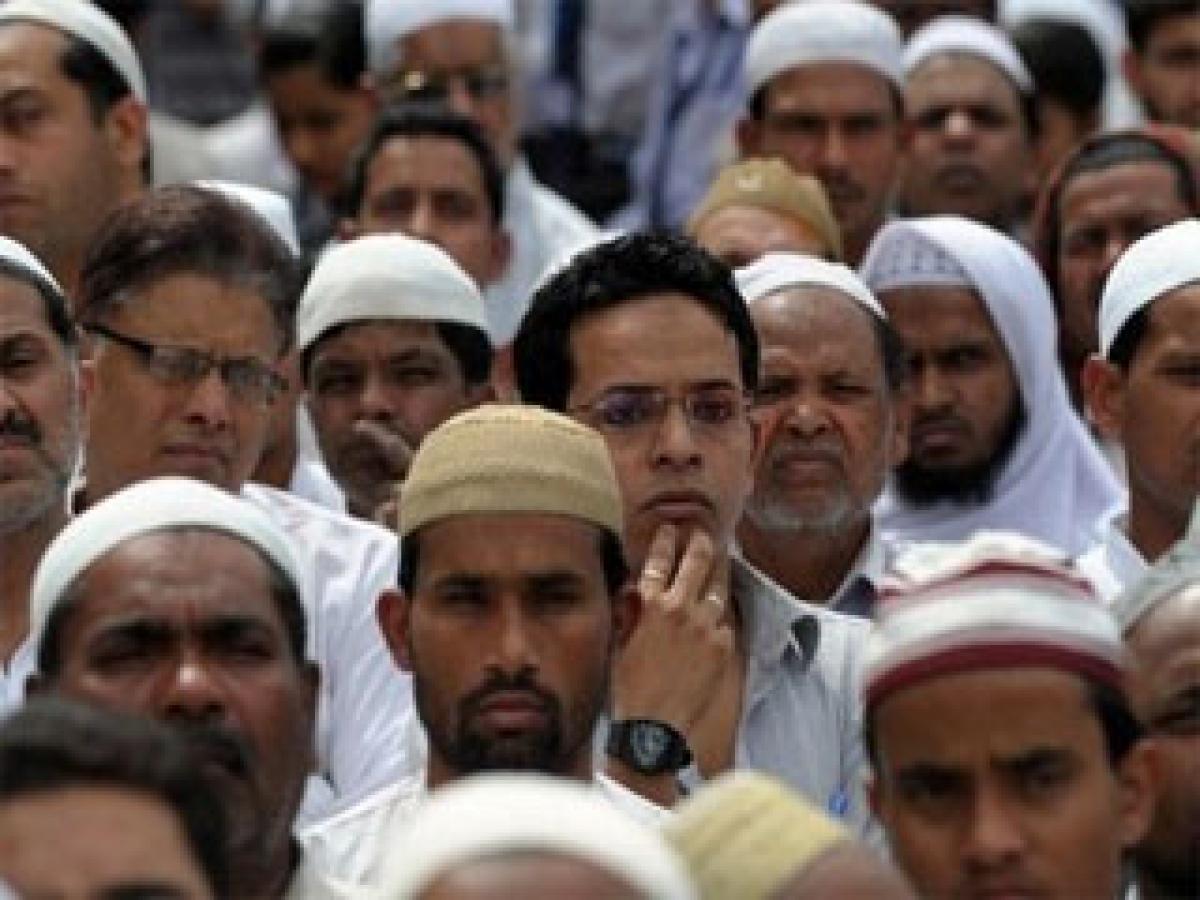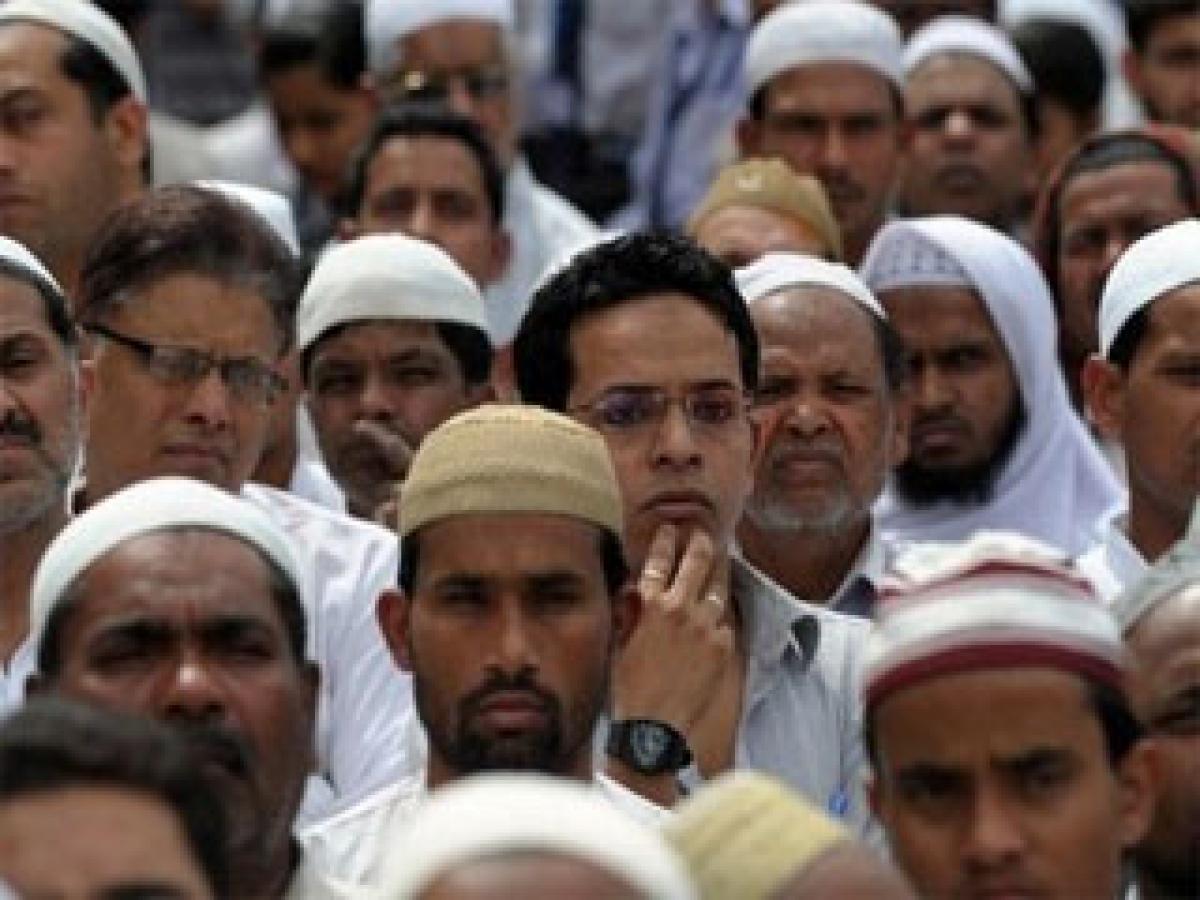Live
- ‘Srikakulam Sherlock Holmes’ to hit screens this Christmas
- ‘Mr Manikyam’ FL unveiled; promises a tale of human values
- ‘M4M’ Hindi trailer gets a grand launchat Goa IFFI
- ESA’s Proba-3 Mission Reaches Milestone with Successful Fueling, Set for December 2024 Launch
- Kejriwal tells Delhi voters to back AAP’s single-engine, shun BJP’s double-engine govt plan
- Man booked for objectionable posts on Hindu deities in Karnataka
- 'Own interpretation developed': SC trashes pleas challenging insertion of 'Socialist', 'Secular' in Preamble to Constitution
- Gurugram: Three including two women held in murder case
- Afghanistan: Six killed as vehicle falls into river in Badakhshan
- Complete failure in handling the situation: Congress on Sambhal violence
Just In

Prime Minister Narendra Modi said that his government is against religion as the basis for reservations. He is right. Indian Constitution does not agree to the religion as the basis of reservation. The issue was even discussed in the Constituent Assembly which also did not favour religion-based quota.
 Prime Minister Narendra Modi said that his government is against religion as the basis for reservations. He is right. Indian Constitution does not agree to the religion as the basis of reservation. The issue was even discussed in the Constituent Assembly which also did not favour religion-based quota.
Prime Minister Narendra Modi said that his government is against religion as the basis for reservations. He is right. Indian Constitution does not agree to the religion as the basis of reservation. The issue was even discussed in the Constituent Assembly which also did not favour religion-based quota.
As graphically revealed by the Sachar Committee, Muslims suffer from serious forms of social and economic deprivation, but, Muslims as a religious category in India never underwent social or economic injustice and suppression. At times, they constituted ruling elite, too.
In fact, Islam does not recognise caste. But, in its Indian variant, there exists high levels of class formation. The religion-based quotas can also prove to be a fodder for fundamentalist forces to divide the nation. It’s even detrimental to the interests of Muslims.
It is difficult to reconcile the demand for reservations to religious minorities, solely on the religious basis with the constitutional principle of non-discrimination on the basis of religion as enunciated in Articles 14, 15(1) and 16(2) of the Constitution.
Thus the constitutional position is that Muslims as a religious category are not eligible for reservations. However, religion cannot be the basis for denial of reservations to any community. Modi did not talk about this second dimension of the argument. Religion, therefore, cannot be the basis for giving or denying reservations. If a fisherman goes to a temple, he gets the benefits of reservations under OBC quota. But, if he believes in Islamic or any other religious faith, he or she is ineligible for reservations. This also tantamounts to discriminating against someone on the basis of religion which is unacceptable as per the above quoted constitutional provisions.
A Supreme Court Bench of Justices Ranjan Gogoi and Rohinton Nariman in a judgment said that the State should not go by the "perception of the self-proclaimed socially backward class or advanced classes" on whether they deserved to be categorised among the "less fortunates."
New formulae have to be found to determine backwardness. The State should maintain a high level of vigilance to uncover emerging forms of backwardness in a continually evolving society. "The gates would be opened only to permit entry of the most distressed. Any other inclusions would be a serious abdication of the constitutional duty of the State.”
Religious communities have class formations within them and are not homogeneous in character. Various rounds of the NSSO surveys revealed that more than 95 per cent of the Muslim minorities have access to less than 2 hectares of cultivated land, seriously impairing their livelihood security.
Reservations for Muslims are nothing new. They are already in operation for several decades. They have been included in the BC lists of a number of States and in the central lists for States prepared after the Supreme Court’s Mandal judgment in 1992.
Even before this, at the national level, Kaka Kalelkar Commission’s report of 1955 included a number of Muslim BCs in its list. Therefore, certain categories of Muslims scientifically identified as backward can be eligible for reservation. But, Muslims as a whole cannot claim reservations based on their religious status.

© 2024 Hyderabad Media House Limited/The Hans India. All rights reserved. Powered by hocalwire.com







